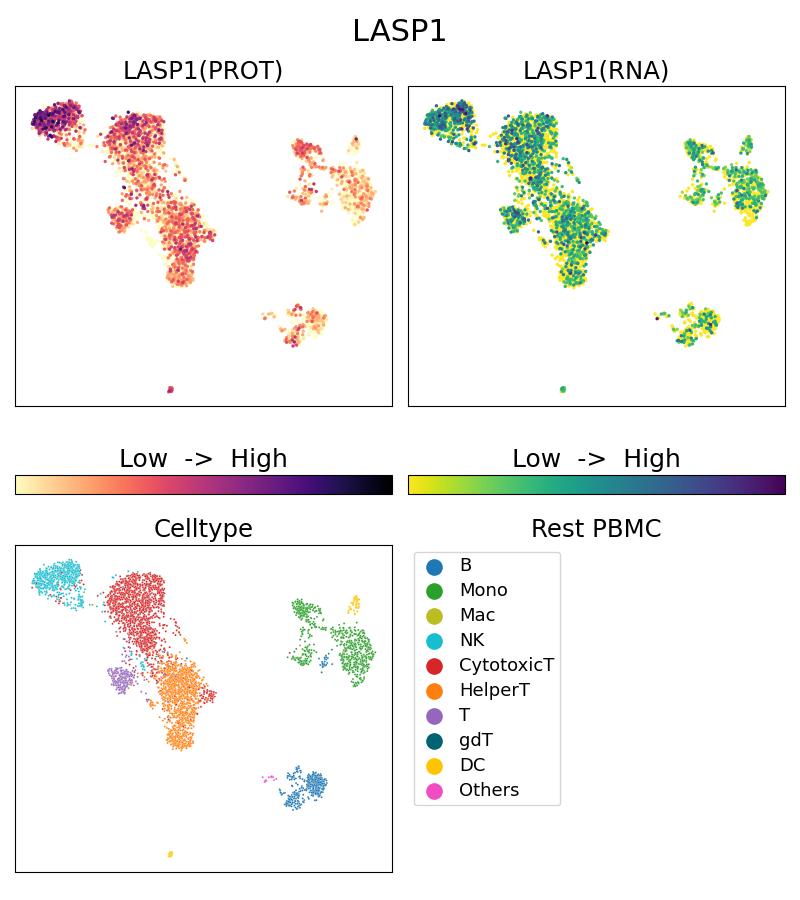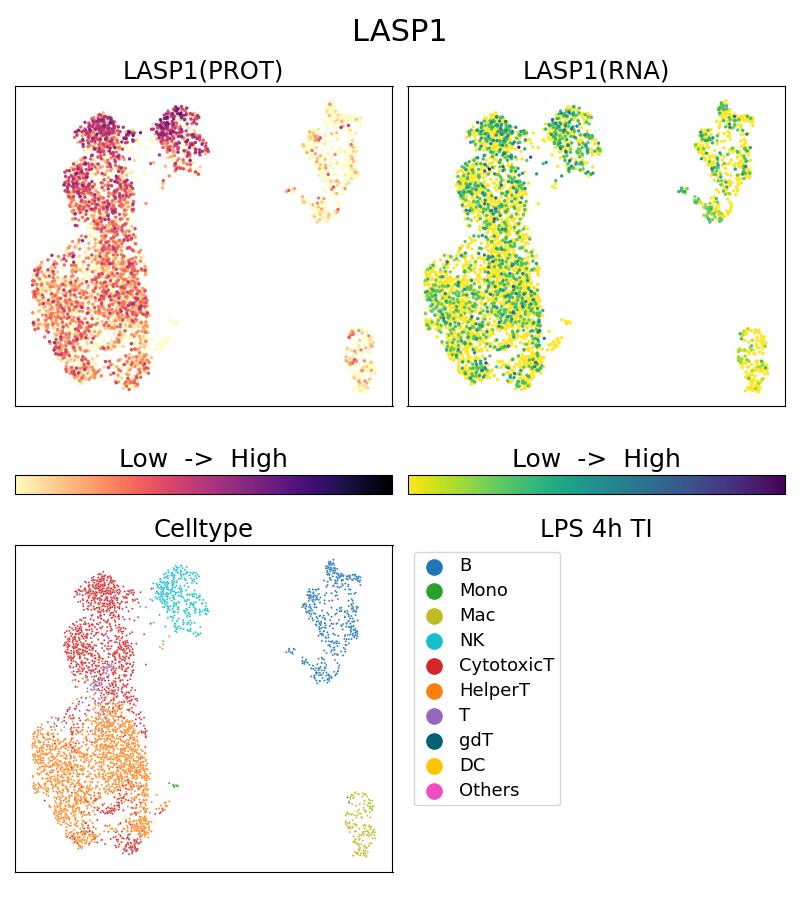Validation Data Gallery
Tested Applications
| Positive Single Cell (Intra) detected in | 10x Genomics Gene Expression Flex with Feature Barcodes and Multiplexing product. |
Recommended dilution
| Application | Dilution |
|---|---|
| SINGLE CELL (INTRA) | <0.5ug/test |
| It is recommended that this reagent should be titrated in each testing system to obtain optimal results. | |
Product Information
G68080-1-5C targets LASP1 in Single Cell (Intra) applications and shows reactivity with Human samples.
| Tested Reactivity | Human |
| Host / Isotype | Mouse / IgG1 |
| Class | Oligo Conjugate |
| Type | Monoclonal |
| Immunogen | LASP1 fusion protein Ag18101 相同性解析による交差性が予測される生物種 |
| Full Name | MultiPro® 5CFLX Anti-Human LASP1 (1G4B6) |
| Calculated molecular weight | 30 kDa |
| GenBank accession number | BC012460 |
| Gene Symbol | LASP1 |
| Gene ID (NCBI) | 3927 |
| ENSEMBL Gene ID | ENSG00000002834 |
| RRID | AB_3673971 |
| Conjugate | 5CFLX |
| Full Oligo Sequence | CGGAGATGTGTATAAGAGACAGACAATACACCAGCACCCCATATAAGAAA |
| Barcode Sequence | ACAATACACCAGCAC |
| Form | Liquid |
| UNIPROT ID | Q14847 |
| Storage Buffer | PBS with 1mM EDTA and 0.09% sodium azide |
| Storage Conditions | 2-8°C Stable for one year after shipment. |
Background Information
LASP1(LIM and SH3 protein 1), also known as MLN50, is a 261 amino acid protein that localizes to both the cytoplasm and the cytoskeleton(PMID: 7589475). LASP1 consists of an N-terminal LIM-domain with two zinc finger motifs, followed by two central actin-binding nebulin repeats, flanked by a linker region and a C-terminal SH3 domain (PMID: 17177073, 9848085). LASP-1 interacts with F-Actin and plays an important role in the regulation of Actin-associated cytoskeletal organization. Agonist-dependent changes in LASP1 phosphorylation may regulate Actin-related ion transport activities in epithelial cells (PMID: 15465019,12571245). Overexpression of LASP-1 is associated with breast cancer, and plays a role in tumor transformation and metastasis (PMID: 17956604).
Protocols
| MultiPro™ Cell Surface and Intracellular Staining Protocol | Download protocol |
| 10x Genomics Cell Surface Protein Only Staining Protocol | Download protocol |

